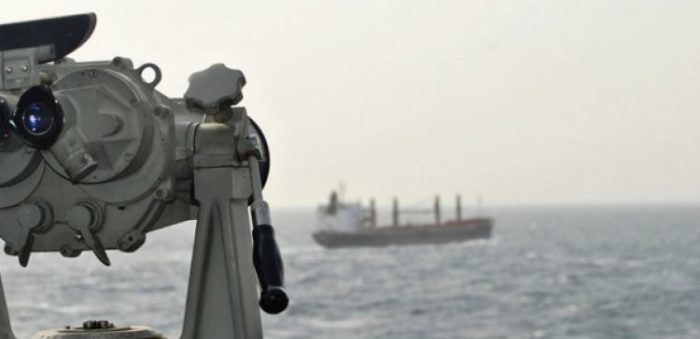Nigeria launched the Deep Blue Project in order to tackle piracy and maritime crime
Nigeria launched the Deep Blue Project, in order to tackle piracy and maritime crime in its waterways and the Gulf of Guinea.
To support the project a Special Mission Aircraft was received, indicating the the final phase of the delivery and installation of assets under the Deep Blue Project.
Under this light, Director General of the Nigerian Maritime Administration and Safety Agency (NIMASA), Dr. Bashir Jamoh, revealed a drastic reduction in the rate of attacks in the country’s Exclusive Economic Zone (EEZ) with the deployment of the Deep Blue Project assets:
There has been a drastic decrease in the rate of security breaches in our waters in recent times. This is a clear indication that we are getting it right with the Deep Blue Project. The figures we are getting from the International Maritime Bureau (IMB) are encouraging. We ultimately aim to completely eradicate security hindrances to shipping and business generally in the Nigerian maritime domain
According to the latest IMB quarterly report of piracy and armed robbery against ships recorded only two incidents in Nigerian waters between January and March this year, compared to 11 attacks within the same period last year.
The Integrated National Security and Waterways Protection Infrastructure, popularly called the Deep Blue Project, is designed with three categories of platforms to tackle maritime security issues on land, sea, and air. The land assets comprise:
- The Command, Control, Communication, Computer, and Intelligence Centre (C4i) for intelligence gathering and data collection;
- 16 armoured vehicles for coastal patrol; and about 600 specially trained troops for interdiction, known as Maritime Security Unit;
- On air, there are two Special Mission Aircraft for surveillance of the EEZ
- Three Special Mission Helicopters for search and rescue;
- Four Unmanned Aerial Vehicles;
- The sea assets consist of two Special Mission Vessels and 17 Fast Interceptor Boats.
In the same wavelength, considering the attacks on merchant ships in the Gulf of Guinea by Nigerian pirates, 99 maritime companies, organisations and flag states, have signed the Gulf of Guinea Declaration on Suppression of Piracy, which was launched on May 17.

